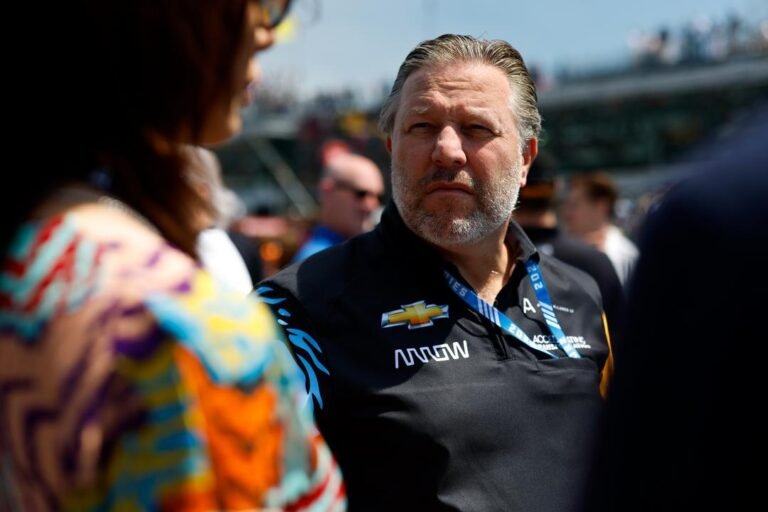Zak Brown Advocates for IndyCar Investment to Boost Growth
In a recent media roundtable at the Chevrolet Detroit Grand Prix, McLaren Racing CEO Zak Brown discussed the transformative journey of McLaren from one of the lowest-performing teams in Formula 1 to the 2024 Constructors’ Champion and current leader, largely driven by the talents of Oscar Piastri.
Brown’s vision extends beyond F1; he is now calling for substantial financial investment in the IndyCar Series, currently owned by Roger Penske. He believes that with the right financial backing, IndyCar could pose a significant challenge to the rapidly growing popularity of Formula 1 in North America.
“We need to view Formula 1 as a model rather than a competitor,” Brown stated. He emphasized the need for innovative thinking to revitalize IndyCar, advocating for an increase in investment to stimulate growth. Brown noted that despite previous financial inputs from Penske, which he estimated might yield tenfold returns if executed properly, further investment is crucial.
Brown detailed his perspective on IndyCar’s financial strategy, saying, “There’s a difference between sustaining the sport and investing to create value.” He highlighted the potential of hosting races in larger markets, suggesting that even if initial events may not be profitable, they could enhance visibility and attract sponsorships, ultimately driving revenue growth.
“The new Texas race at the Cowboys stadium is a prime example of leveraging partnerships for future success,” Brown pointed out. He expressed the need for a faster-paced schedule adjustment and continued to underline the disparity between merely covering costs and expanding the sport’s reach.
IndyCar, according to Brown, possesses the brand recognition necessary for substantial growth, comparable to successful sports franchises like UFC. “We have a rich history and a strong brand. With the right investments, there’s no reason IndyCar shouldn’t be valued in the billions.”
Furthermore, he proposed a franchise system mirroring established leagues such as the NFL and MLB, where teams could share in the growth and success of the sport collectively. “If the value of my IndyCar team increases, we all benefit,” Brown concluded, reiterating his desire for collaborative investment for future success.
As IndyCar contemplates its path forward, Brown’s insights call for a shift from defensive cost-cutting measures to a proactive investment strategy aimed at enhancing the overall stature of the series and its teams.



